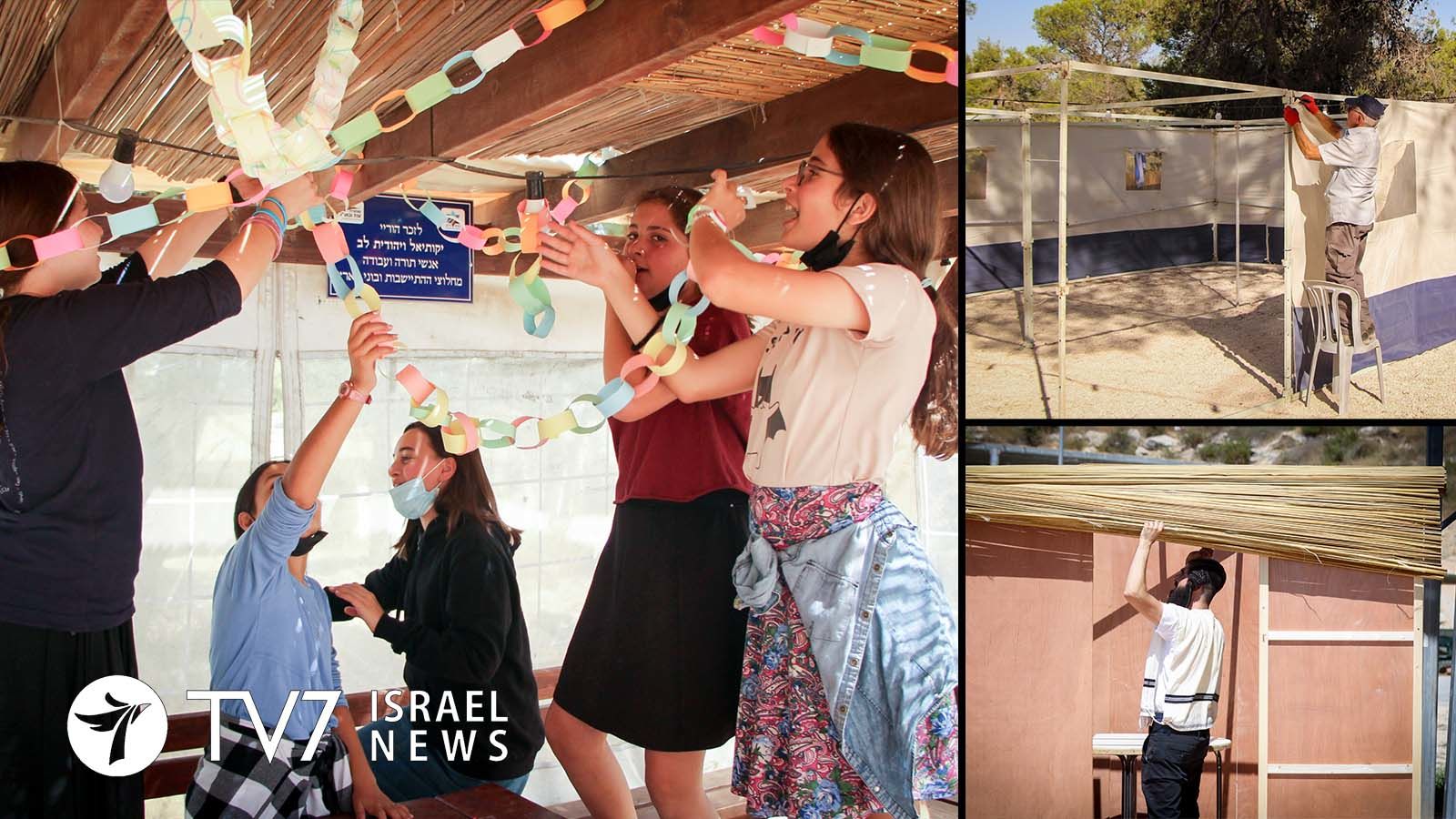Jews around the world are currently observing the week-long festival of Sukkot.
By Erin Viner
In accordance with all Jewish holidays that begin at sundown, Sukkot celebration began last night.
Many families build outdoor “sukkot” (walled booths, also known as tabernacles) in their gardens, building entrances or balconies. Kosher restaurants and other venues also construct the dwellings for their observant patrons. Palm leaves are traditionally used for roofs, through which the night stars are visible.
Sukkot is referred to as the “Festival of Ingathering at the year’s end” in the Biblical passage of Exodus 34:22, while Leviticus 23:42–43 says the hut-like structures are meant to evoke the temporary refuges lived in by the Israelites during their 40-year sojourn in the desert after their Exodus from slavery in Egypt prior to reaching freedom in the Land of Israel.
Throughout the holiday, families host festive meals and gatherings with friends within the sukkot, which are often adorned with decorations including lights. Many observant Jews also sleep inside the booths overnight.
Other activities include the Biblical instruction to ‘take up of the four species” as written in Leviticus 23:40: “And you shall take on the first day the fruit of splendid trees, branches of palm trees and boughs of leafy trees and willows of the brook, and you shall rejoice before the LORD your God for seven days.” Talmudic tradition identifies the four species as the “etrog” fruit of a citron tree, the “lulav” green fond of a date palm, a “hadass” myrtle bough and an “aravah” willow branch; which are bound together and waved each day of the festival.
The bi-annual Birkat HaKohanim (Priestly Blessing) will also be held at the holiest site in Judaism, the Western Wall of the Temple Mount in Jerusalem’s Old City on 23 September.
The holiday concludes in the State of Israel at sundown on 28 September following celebration of Simchat Torah (“Rejoicing of the Bible”), while Jewish communities abroad observe an eighth day.
Many Christians also commemorate the festival in fulfillment of Zechariah 14:16: “the nations…shall come up from year to year to worship the King, the Lord of hosts, and to keep the Feast of Tabernacles.’
Tens of thousands of Christians usually flock to Jerusalem to participate in the annual Feast of Tabernacles hosted by the International Christian Embassy Jerusalem (ICEJ), which has followers from more than 170 nations worldwide. The mega event had become a beacon of Jewish-Christian relations highlighted by a major march through Jerusalem with people of both faiths waving the Israeli flag together while singing the country’s national anthem.
This year, however, the ICEJ will commemorate the occasion with online broadcasts due to the ongoing coronavirus pandemic. All senior Israeli leaders issued video greeting for the opening event, which ICEJ President Jürgen Bühler said “shows the Bennett-Lapid government indeed understands and values the importance of Christian support for the Jewish state and people.”
Israeli Prime Minister Naftali Bennett used his address to laud the organization as “a center of pro-Israel activism by our many Christian friends in the Holy Land and around the world,” whose “passion for Israel is an uncompromising statement of support for the Jewish State, for its people and for our destiny.”
President Isaac Herzog expressed gratitude to the ICEJ and its supporters for their “unwavering continued friendship” and continued prayers for Israel despite the many “challenges each of you has experienced over the past year.”
Alternate Premier and Foreign Minister Yair Lapid also offered his thanks “for the millions of Christian supporters of Israel who stand with us in good times and bad; to you who fight antisemitism wherever and whenever it raises its ugly head, who stand proudly shoulder-to-shoulder with the Jewish people.”
“Sukkot connects us to our past, to our people, to our story,” mused Minister Lapid, emphasizing that the mutual celebration of the festival “reminds us that we all are part of something bigger.”
“The support of the Christian Zionist community is critical,” underscored Defense Minister Benny Gantz, who outlined the many threats by Israel’s enemies who “declare their desire to destroy the only Jewish State and follow up with actions that aim to harm our civilians, our soldiers, and our essence.”
The IDF has imposed a general closure on all crossings into Israel from the West Bank, as it does to ensure security during Jewish holidays and election days. The ban went into effect yesterday a 4 PM and will end tonight at midnight. During observance of Simchat Torah, the closure will be re-imposed at 4 PM 27 September and remain in effect unti midnight the following day. Entry is permitted only for humanitarian, medical or exceptional circumstances.
